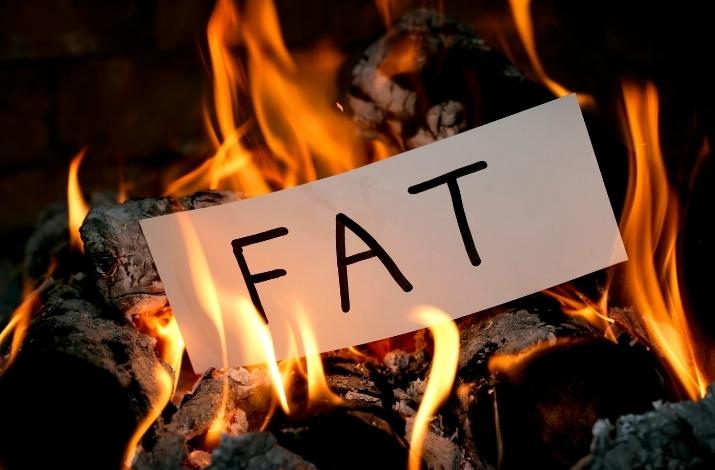Using fat as fuel for your metabolism

Having a healthy body fat level is fundamental to good health. As a result of our modern lifestyle, most people struggle to keep body fat in a healthy range as we age. The prevailing strategy to help with keeping body fat in control is to simply control calories. Under this paradigm, having a higher metabolic rate is thought to be essential to keeping fat gain at bay. But is it really?
Weight control is a complicated process that involves numerous variables. Despite our obsession with metabolic rate, which is a reflection of the energy a body uses (i.e., “calories out”), it’s actually somewhat anticlimactic to realize that metabolic rate is largely a function of body weight. It’s a fact, the larger the body, the higher the metabolic rate #. Regardless, if a body has a higher metabolic rate, it’s easy to imagine that this would lead to better fat control. Unfortunately, this doesn’t appear to be the case.
The Baltimore Longitudinal Study [1] provides compelling data on this subject. By following roughly 800 subjects for an average of 10 years, scientists were able to determine to what degree metabolic rate matters in weight control. The average weight change in the subjects over the 10 years was quite modest–about 2 lbs. About 15% of the subjects gained almost 12 lbs, while about 5% of the subjects gained over 20 lbs. Metabolic rate appeared to have nothing to do with it. In other words, whether the subjects had a high or low metabolic rate had no influence on whether the subjects gained or lost weight over the 10 years.
But, metabolism still appeared to matter. Rather than how much a person burned, the variable that predicted weight control was what a person burned. The human metabolic engine runs on fat and glucose (i.e., blood sugar), with one or the other dominating at any given time. By analyzing a person’s breath, specifically, the ratio of oxygen and carbon dioxide, we can know which fuel, glucose or fat, is primarily burned.
Study subjects that burned relatively higher amounts of glucose for fuel (i.e., “sugar-burners”) were more likely to gain more weight compared with subjects whose metabolism was primarily fueled by fat (i.e., “fat-burners”). In fact, the sugar-burners were about 2.5 times more likely to gain over 10 lbs compared with the fat-burners. In the end, the conclusion was clear, and not overly surprising: being a sugar-burner leads to greater weight gain.
There’s one more take-away worth noting: what controls fuel use? If sugar-burners tend to gain more weight than fat-burners, how can we switch our metabolic fuel to fat? This is where hormones come in–metabolic rate dictates how much fuel is used, but hormones dictate which fuel is used. Specifically, the hormone insulin has near-total control over fuel use [2]. When insulin is elevated, the body shifts to sugar-burning; when insulin is low, the body shifts to fat-burning.
Thus, controlling which fuel we burn is as simple as controlling insulin. By following the cardinal rule to control carbohydrates (i.e., focus on the least starchy and sugary), we make the metabolic switch to fat burning. And, as the evidence supports, being a fat burner is a better way to keep body weight under control.
References
- https://europepmc.org/article/med/1328091
- https://physoc.onlinelibrary.wiley.com/doi/pdf/10.1113/expphysiol.1924.sp000319
This article is for informational and educational purposes only. It is not, nor is it intended to be substitute for professional medical advice, diagnosis, or treatment and should never be relied upon for specific medical advice.



















